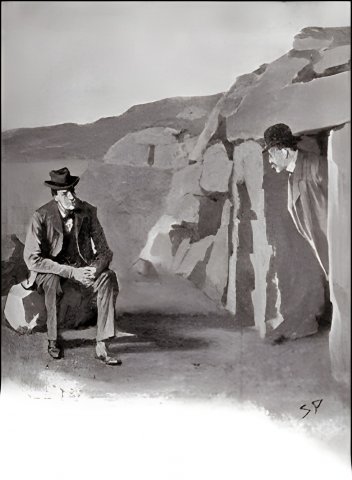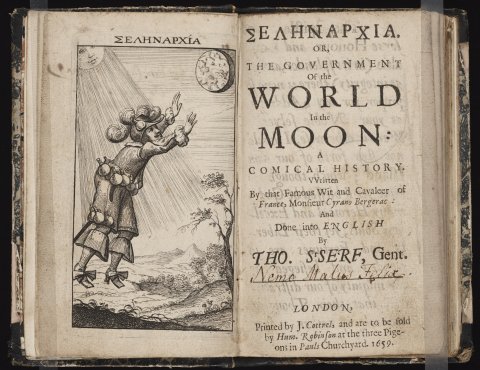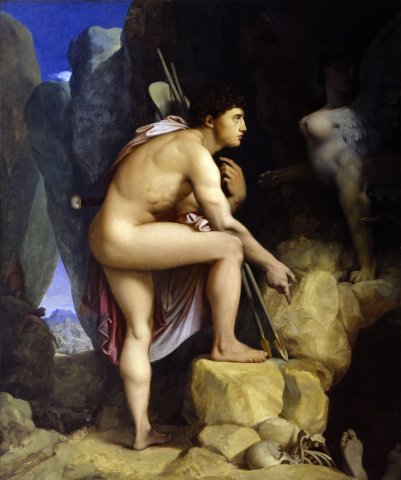The challenge of theory
Loving to read, to be transported into an author's world, to be fascinated by a character or characters, is one thing counting tropes, navigating between heterodiegetic, paratext and hypotext, is quite another. Literary theory often seems like a dry accounting exercise, with lifeless recipes. Perhaps, then, it would be better to read literature without theory? Just a little historical context, an explanation of difficult words or passages, might suffice ? Why, then, do texts, explained at their simplest, fall out of our hands, fail to speak to us ?
ΣΕΛΗΝΑΡΧΙΑ or the Government of the world in the moon (Cyrano de Bergerac, 1659)
Too often the student is caught between these two pitfalls : on the one hand, a critical science that puts off and seems sterile, an arithmetic of processes ; on the other, distant texts, which don't speak to us, don't enchant us, or no longer do. How can we rediscover the pleasures of childhood, when immersing ourselves in a book, or in a story read to us, would delight us or move us to tears? How do we enter into the powers of literature, when it transforms the world, holds up a mirror to our innermost selves, weaves or reweaves the bonds of a community ?
Literature must be reconnected to the life that animates it, to intimate life, to the life of the mind, to the political battles that have carried it and are carrying it, that it has led and that it initiates today. Not simply to explain texts, but to connect texts to life. This is where theory comes in.
It would be absurd indeed to think that we can do " au plus simple ". As if we could study the physics of the atom, but without quantum physics because it's too difficult... Or take up astronomy, but keep the hypothesis of the earth at the center of the universe because it's more reassuring... Or experience the exhilaration of speed when skiing, but stay on green slopes... Yes, theory is difficult : it challenges us. But it alone can make the connections necessary for literature to come alive for us, revealing its secrets and powers, but also its ways of thinking.
Therefore, it won't be a question of turning our backs on theory, but of taking it in hand, explaining it, making it accessible. Not taking frigid refuge in the shortest and easiest texts, so short and easy that they bore us, but confronting together the most difficult texts, which we would never read alone and which we will succeed in penetrating, understanding, relating thanks to the work followed.
The stakes of psychoanalysis
Or this dilemma of literature is also that of psychoanalysis. What could be more fascinating than the Freudian discovery of talking therapy ? But the magic and enthusiasm that accompanied this discovery in Vienna at the end of the 19th century seem to have faded. Gone are the miraculous cures, the keys to dreams and the shattering revelations of the Oedipus and the unconscious; our era is one of suspicion : on the one hand we would like quick and easy therapy, on the other the psychoanalytic theoretical corpus seems inaccessible, unreadable and vain.
.Oedipus and the Sphinx (Baltimore version) - Ingres
The real /// science, don't the real means of healing lie in technical progress, which allows us to follow the slightest electrical tremors of our neurons on screen, and in the development of cognitive sciences, which aim to mathematically model all the operations of thought ?
.The point here is by no means to deprecate these new tools of positive science, but to think about them, in a human environment. Just as literature needs to be reconnected with life, psychoanalysis is essential to rediscover the human path of the word, and to give meaning to life through it. The invention of psychoanalysis is not the invention of an abstract dogma, frozen in a corpus of intangible texts; it is above all the invention of a mechanism: a patient confides in his analyst, a word is freed up, and work is carried out on the basis of this word. The patient's case will then, if it is singular, new, rich in lessons for other cases, expand the psychoanalytic corpus.
What is a case study ? First and foremost, it's a narrative, a form of life storytelling, deeply linked therefore to literary narrative. But it's also a reflection on this case, its modeling, and through it a contribution to theory. The psychoanalyst who exposes a case thus makes, on the basis of his practice, on the basis of the life that has in a way been entrusted to him, both a literary work and a theoretical work.
.What is the function of this entrusted word ? Of course, it doesn't magically liberate the speaker from what he's suffering from. But it is the work of reason : to understand oneself through one's word, to access through it the darkest forces and zones of oneself, to think and formulate one's wounds, desires, shortcomings, identities, is to make a wager on the spirit and its restorative power, in the heritage of the Enlightenment.
No.
The LIPS master's degree: literature and psychoanalysis

The training offered by LIPS is designed to meet this dual challenge: to reconnect literature with life through an introduction to literary theory and its philosophical implications; and to link clinical psychology with psychoanalytical reflection on the case, the case story and the case study. This challenge is that of a contemporary humanism, using literature and psychoanalysis to think about ourselves and the major political challenges ahead.
.The LIPS master's degree therefore offers students a dual training in literature and psychoanalytic theory, drawing on the rich training offer of the Faculty of Letters at the University of Aix-Marseille, and its Modern Letters and Clinical Psychology departments.
This course is open primarily to students with a bachelor's degree in literature or psychology. It can also be a useful complement to training in psychology, for psychologists and students with a psychology degree who wish to strengthen their knowledge of the psychoanalytic paradigm in its openness to literature.
This course is open primarily to students with a literature degree or a psychology degree. ///
Littérature et Psychanalyse
Archive mise à jour depuis 2019
Littérature et Psychanalyse
Le Master LIPS
Séminaire Amour et Jouissance (2019-2021)
Amour et Jouissance
Jouir et Posséder
Vers l'amour-amitié
Les signifiants du désir
50 nuances de Grey
Duras, la scène vide



